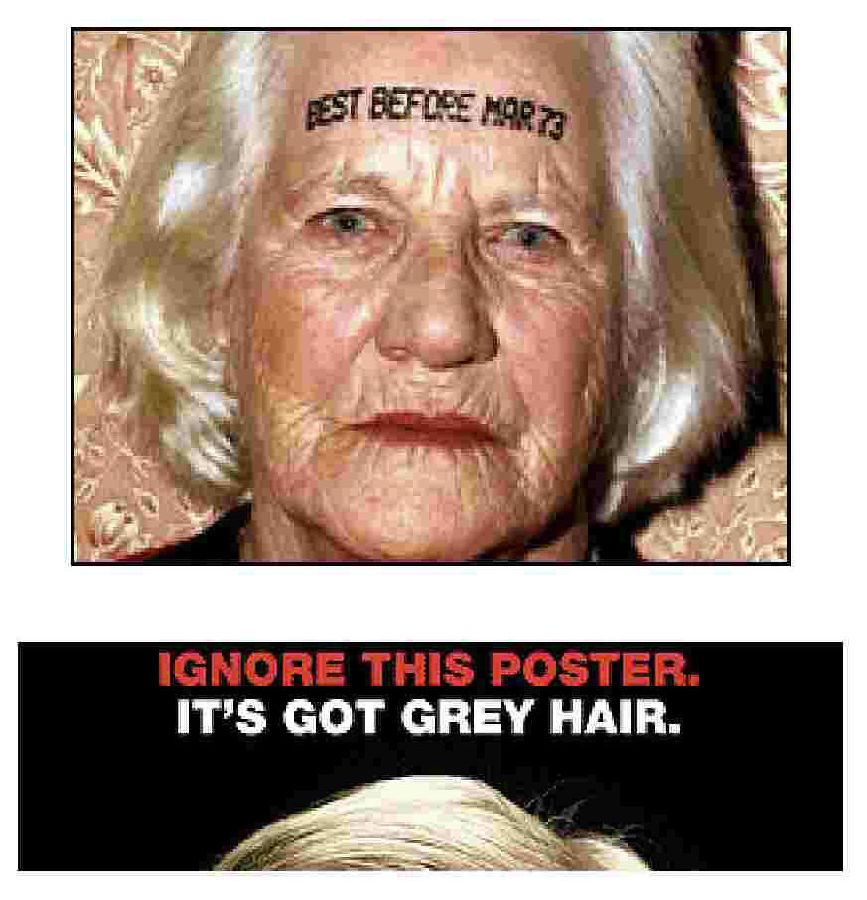When you feel as if a negative stigma is stereotyped on you because you are a certain color, it is called racism. When you feel as if you have not been given the same equal opportunity as the other sex, it is called sexism. When you apply for a job and you are told you are too old to work, it is called ageism.
Ageism is a new word to me. I had never heard of it until last week when I was doing some readings. I realized at that moment that even I was at fault for sometimes stereotyping older people. Honestly, I think everyone has at some point. I think this stereotype has mostly, and more predominately, occurred in my generation, Generation Y. In the ‘old days’ whenever parents could no longer take care of themselves, the children took care of them. Now, as Generation Y’s parents are getting older, long-term care facilities are growing drastically. Instead of living with their children, they are living in long term care facilities. I hope in my interviews in the next few weeks I will be able to grasp a better understanding of ageism from an older persons perspective.
I read a very interesting study on the elderly and primary care physicians named ‘Primary Care for Elderly People: Why Do Doctors Find It So Hard?’ 30-40% of doctor’s visits are from those who are 65 and older. However, 30-50% of physician practices limit the amount of patients 65 years of age and older (Flood & Clark, 2009). The study recognizes the reasons why physicians limit their elderly patients by interviewing 20 participants. Three major dilemmas were found. One was that the elderly are complicated. Chronic diseases lead to long-term use of many different medicines (Flood & Clark, 2009), called polypharmacy (Touhy & Jett, 2012). The doctors have to check and recheck all the medicines to make sure there will be no drug interactions. Not to mention, older people have multiple doctors that have prescribed them on different medicines. The second set of dilemmas includes communication issues, time and ethical problems. Some patients may refuse to wear a hearing aid and others may not have learned English as their first language. Both of these communication issues leads to the patient not fully understanding how to take care of their self. Time seems to be a challenge for all doctors. To meet with an elderly person that needs instructions repeated multiple times or doing an exam takes longer because the person is not very mobile takes a lot of time. The last big issue seemed to deal with the hardship of administrative duties. Medicare documentation leaves physician’s offices constantly flooded with paperwork and in the end, the hours of paperwork may not outweigh financially (Flood & Clark, 2009).
A lot of my current readings have been on medicine and the older adult. Chronic diseases are usually the reason for long-term medicinal use. Pharmacist Lindsay Kaster, from the Boise VA Medical Center, estimates long-term care patients take 6-8 medicines daily (Kaster). This makes it much easier to understand how older adults can easily miss a dose or double dose their medicine. This leads me to believe that between 6-8 medicines some kind of interaction must be going on so that the person so not receiving the proper amount originally prescribed. Most of the time it is presumed that when an older person falls it is because he or she is weak but in fact it could be a side effect from medicine. Often times, this is a reaction that occurs when self-medication is practiced. Benadryl is taken often for allergies, anxiety and sleep. It is also a anticholinergic, which can cause orthostatic hypotension. In other words, taking Benadryl can cause confusion and unsafe drops in blood pressure upon standing (Toucy & Jett, 2012). This is the perfect situation that creates an older person to fall and hurt their self. What does this person do? Does someone live with them or do they live by their self? This is a real life situation that could lead to serious injuries.
Obviously, this information does not makes us all jump for joy to become older but I do believe it is important for everyone to understand an older persons perspective.
Flood, M., & Clark, R. B. (2009). Exploring Knowledge and Attitudes Toward Aging Among Nursing and Nonnursing Students. Educational Gerontology, 35(7), 587-595. doi:10.1080/03601270802605333
Kaster, L. (n.d.). Medications and older adults. , Boise VA Medical Center.
Touhy, T., & Jett, K. (2012). Ebersole & hess' toward healthy aging:human needs and nursing response. (8 ed.). Missouri: Elsevier Mosby.



